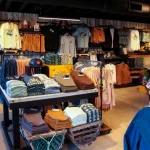W.L. Gore & Associates’ Fabrics Division shared the results of its Life Cycle Assessment (LCA) report for the first time with the public, examining its entire manufacturing process.
LCA is the global standard for assessing the total environmental impact of a finished product. It takes into account all aspects of a product’s ecological footprint, including resource and energy consumption, air emissions, water and land impact, as well as health and ecosystems.
Gore Fabrics has been using LCA since 1992 as its ecological accounting system and was one of the first in the outdoor industry to perform a comprehensive “cradle-to-grave” review.
Gore evaluated the environmental impact of a durable waterproof, windproof and breathable Gore-Tex jacket used for five years [by an American outdoor consumer].
The results show that during the entire lifetime of a Gore-Tex jacket, a total of 160.3 lbs. of CO2 eq. are emitted, 549 gallons of fresh water and 992 MJ of primary energy are consumed, the equivalent of 7.7 gallons of gas. To put it in perspective, for a pair of jeans, 51.4 lbs. of CO2 eq. are emitted over its entire lifetime, but multiple pairs may need to be purchased during the lifetime. A Gore-Tex jacket provides protection from the element, while jeans provide little to no protection to the wearer.
Focusing on the lifetime of a jacket, the study proved that the jacket’s lifetime is the single most influential factor in improving several environmental impacts.
“The LCA findings clearly demonstrate that the best way to minimize the environmental footprint of functional outerwear products is to enhance their durable performance and, thus, their longevity,” said Bernard Kiehl, a member of Fabrics Division Sustainability Team. “This is why quality, durability and performance are the three cornerstones of Gore-Tex products. This LCA study provides Gore with solid data that helps its leaders make sound business decisions with regard to its supply chain.”
The LCA study was conducted in partnership with the Öko-Institut Freiburg, a leader in environmental impact. Martin Möller, deputy head of the Institute’s Sustainable Products & Material Flows division, said, “The cooperation between Gore Fabrics and the Öko-Institute Freiburg is based on our shared commitment to sound science.”
Gore Fabrics’ LCA expertise will work closely with the Sustainable Apparel Coalition (SAC), an industry-wide group of over 80 leading apparel and footwear brands, retailers, suppliers, nonprofits, and NGOs working to reduce the environmental and social impacts of apparel and footwear products around the world.
Globally, Gore Fabrics will do the following:
- Further improve energy efficiency in our facilities
- Encourage its supply chain to implement the Bluesign standard to reduce energy and water consumption
- Contribute to the long-term cooperation with the Sustainable Apparel Coalition (SAC)
- Encourage brand partners and others in the industry to use this scientific method to substantiate their environmental claims
- Engage with consumers on how to best care for Gore-Tex product
- Continue to deliver long performing and lasting products














